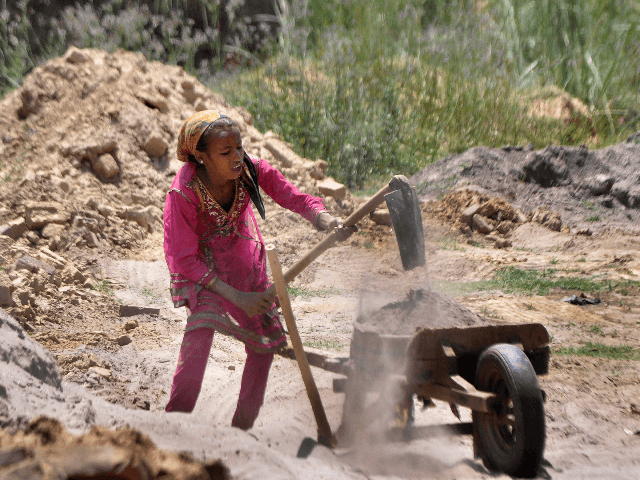A joint report by the International Labor Organization (ILO) and the United Nations Children’s Fund (UNICEF) published on Friday warned that the economic impact of the Chinese coronavirus pandemic will likely force millions of children into forced labor.
The report, titled, “COVID-19 and Child Labour: A Time of Crisis, a Time to Act,” stated that although levels of child labor have fallen dramatically over the past few decades, the poverty stemming from the economic effects of the coronavirus will reverse many of those gains.
It read in part:
The full impacts and length of the crisis, and how different people will fare, remain uncertain. But some of the fallout is already obvious. The pandemic has increased economic insecurity, profoundly disrupted supply chains and halted manufacturing. Tightening credit is constraining financial markets in many countries. Public budgets are straining to keep up.
When these and other factors result in losses in household income, expectations that children contribute financially can intensify. More children could be forced into exploitative and hazardous jobs. Those already working may do so for longer hours or under worsening conditions. Gender inequalities may grow more acute within families, with girls expected to perform additional household chores and agricultural work.
The report also urged governments to take preventative measures against an uptick of child labor, although such calls are unlikely to be heeded, be it due to lack of will or lack of resources.
It continued:
There is no doubt that the current crisis is dire. At the same time, governments can make choices today that will determine the course and consequences of the pandemic. These choices must include conscious measures to prevent and eliminate child labor.
Where child labor has temporarily subsided due to movement restrictions, for example, opportunities may arise to prevent children from going back to work. Since potentially dramatic cuts in public spending can aggravate children’s vulnerability to harmful and exploitative forms of work, deliberate choices can be made to mitigate these risks, such as through extended social protection for poor families.
The warnings join several dire predictions made by the U.N. and its relevant agencies in recent weeks, nearly all as a result of the economic chaos caused by the coronavirus and the accompanying measures to contain it, usually in the form of a nationwide lockdown.
Last month, U.N. officials warned that the impact of the economic collapse may end up killing more people than the disease itself, estimating that it could force as many as 420 million people into extreme poverty in what was described as a “global humanitarian catastrophe.”
“Lockdowns and economic recession are expected to lead to a major loss of income among the working poor,” said David Beasley, the executive director of the U.N.’s World Food Program. “In a worst-case scenario, we could be looking at famine in about three dozen countries, and in fact, in ten of these countries, we already have more than one million people per country who are on the verge of starvation. In many places, human suffering is the heavy price of conflict.”
According to the latest figures, there are approximately 7.6 million recorded cases of coronavirus and 426,000 recorded deaths. In normal circumstances, an average of 150,000 people die around the world on a daily basis.

COMMENTS
Please let us know if you're having issues with commenting.